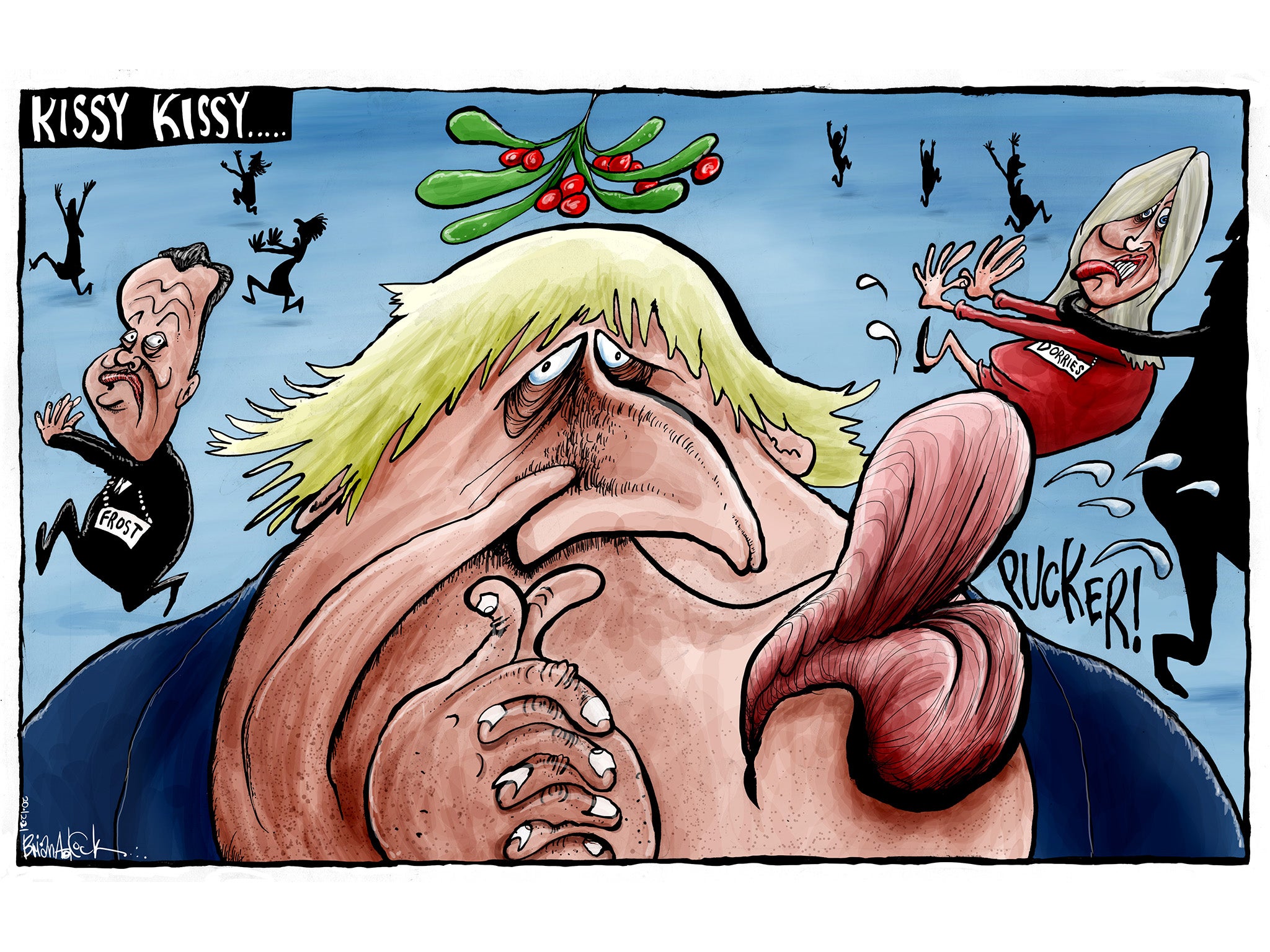Lord Frost’s resignation is a chance to press the reset button with Europe
Editorial: The task of politicians on both sides of the Channel will be to look at our long-term relationship and how it might evolve in the decades ahead

The resignation of Lord Frost from the cabinet is both a threat and an opportunity. Fortunately for the nation the opportunity is vastly more important than the threat.
The threat is a narrow one, for it is principally to the position of the prime minister. Lord Frost, David Frost, popularly known as the Brexit minister, was responsible for negotiating the terms under which the UK left the European Union, and then was elevated to the cabinet to implement the details of the deal. He has been much in the public eye for his tough negotiating style, particularly over the element of the agreement concerning the UK trade relations with Northern Ireland. But he was much more than that. He was a chum of Boris Johnson, someone who the prime minister enjoyed working with, a soul-mate even, who shared his optimistic vision of how the country could prosper outside of the EU.
The prime minister, already much weakened by his many missteps in recent weeks, is weakened further. One resignation from the cabinet does not dislodge a leader who until recently was leading the opposition in the opinion polls, just as one catastrophic by-election does not dislodge a party with a massive majority in parliament. But the moral blow is huge. The wound, a personal one to the prime minister rather than a broader one to the Conservative Party, will not heal.
The opportunity matters much more. Lord Frost’s resignation makes possible a reset of the UK’s relations with Europe, a point made by the Tory MP Tobias Elwood. He said: “We’re still not out of the woods with the Northern Ireland Protocol and we have some rather larger decisions and challenges, which actually unite both the EU, Europe and Britain. As much as I think this is going to be seen as a hit for the government, he was a critical character that’s been with Boris Johnson from the very start when it comes to Brexit, this is a chance for us to actually sort of move forward on our relationship with the EU.”
To keep up to speed with all the latest opinions and comment sign up to our free weekly Voices Dispatches newsletter by clicking here
That must be right. There is the specific issue of the Northern Ireland Protocol, and that demands immediate attention. But rebuilding the relationship with the EU is a vastly larger matter than implementing one element of the leaving agreement. Whatever view one takes of the whole issue of Brexit, Britain and Europe have and will continue to have close economic and political relations not just for the next few years, but for the foreseeable future. That holds true whatever happens to the UK or indeed to the EU. So the task of politicians on both sides of the Channel will be to look at that long-term relationship, how it might evolve in the decades ahead, and what steps can be taken in the coming months to help feel a way towards a more cooperative future.
Fixing the difficulties that traders in Northern Ireland are currently facing is a start. The key to that is goodwill, and rebuilding that requires a reset on both sides. But that is one of many practical issues, some of which have been widely reported, such as fishing and financial services, and some of which have yet to become fully apparent. The overriding vision should be that this should not be a zero-sum game. From an economic perspective the key must be to grow the cake, rather than haggle about how it should be cut up. From a strategic perspective the issues are how best to deploy the diplomatic and military resources of the UK and the European members for the security of the continent. From a human perspective the challenge will be to offer greater opportunities for 750 million people who live together in Europe – including the 146 million in Russia.
The squabbles between the UK and the EU seem so petty when set alongside the challenges that the continent faces. There is now a moment for that reset of the relationship. It should be grasped warmly by both sides.
Join our commenting forum
Join thought-provoking conversations, follow other Independent readers and see their replies
Comments
Bookmark popover
Removed from bookmarks